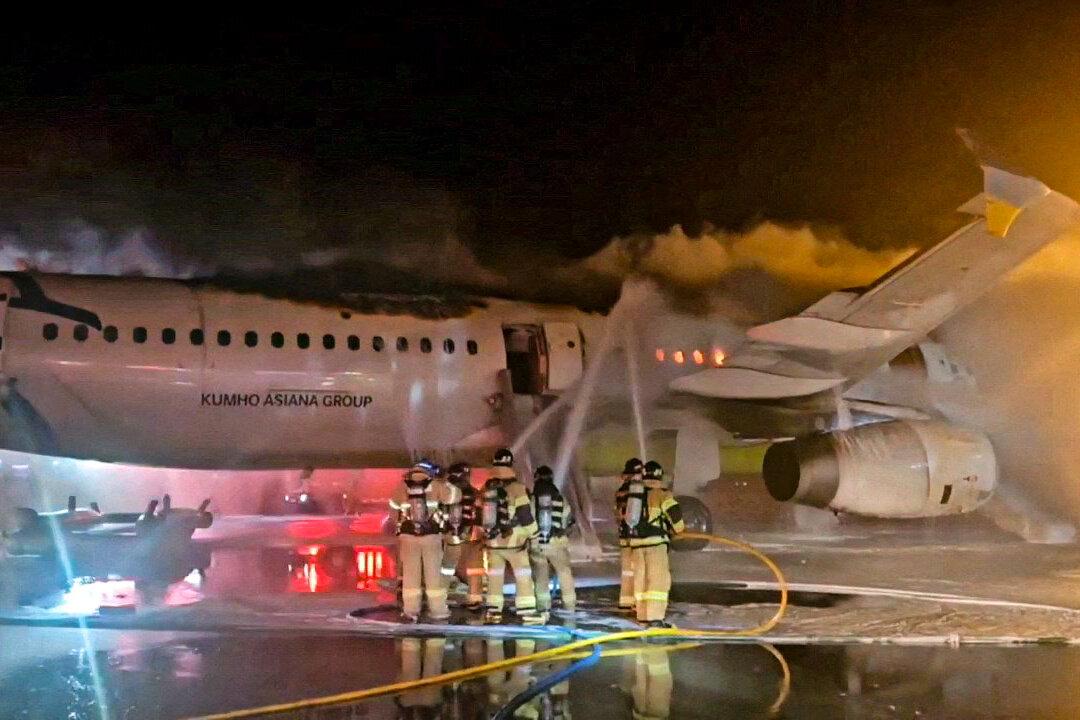SEOUL—South Korea’s Air Busan will not allow passengers to keep power banks in luggage stored in overhead cabin bins, which, on Tuesday, was called a preemptive measure after one of its planes was engulfed in flames last week.
An investigation led by South Korean authorities into the fire has begun, but no cause has yet been determined. Air accidents are nearly always caused by a combination of factors, according to experts.





